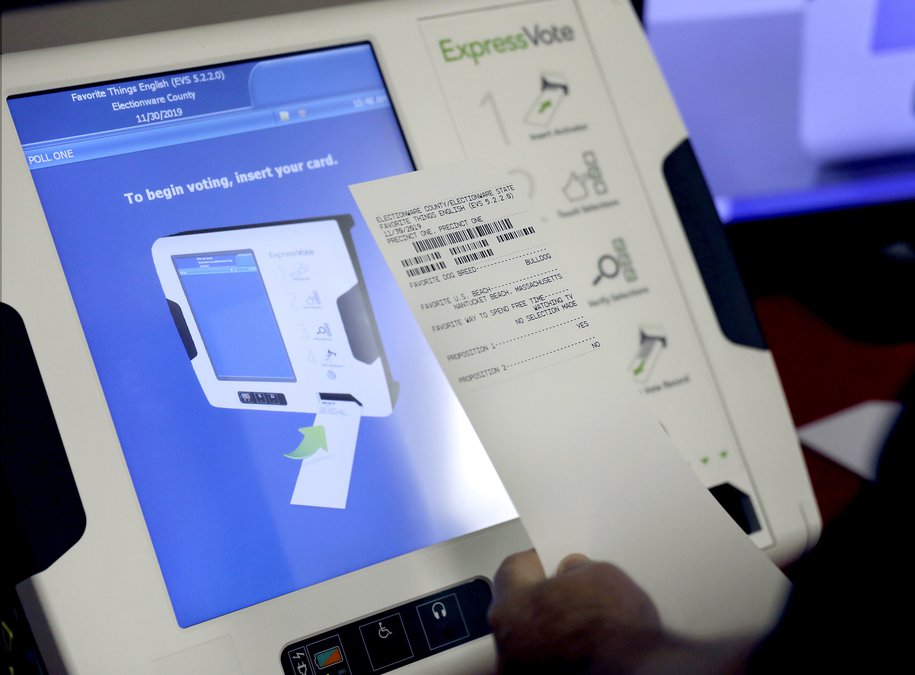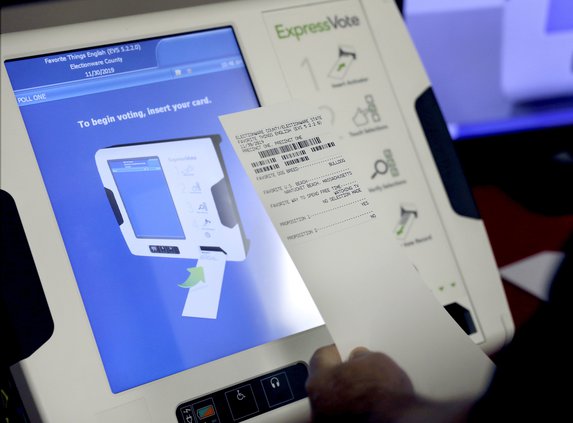ATLANTA — Georgia House lawmakers on Feb. 26 approved moving the state to new electronic touchscreen voting machines that print a paper ballot, a big step toward replacing the current outdated system that offers no verifiable paper trail.
But critics say the proposal disregards cybersecurity experts who widely believe that hand-marked paper ballots are the most secure option.
The bill passed by a 101-72 vote, largely along partisan lines with Republicans in support. All of the members of Hall County’s delegation voted in favor. It now heads to the Senate for consideration.
The proposal comes months after a highly contentious race for governor between Democrat Stacey Abrams and Republican Gov. Brian Kemp, the winner. The election drew national attention and shook voter confidence after it was marred by issues including long voter lines, reports of malfunctioning voting machines, and high rates of rejected absentee ballots.
Some of Tuesday's debate on the House floor focused on that race. Several Democrats said problems during the November election led to a lack of trust among voters.
But Republican Rep. Ed Rynders said that Democrats had created a "false narrative" about voter suppression that they were trying to capitalize on.
Systems using electronic ballot markers include touchscreen computers where voters make their selections, then print a paper ballot that's counted after being scanned. Setups from different vendors vary, but voter selections can either be spelled out in human-readable text, encoded in a barcode or both. Lawmakers hope the machines would be in place by 2020.
Hand-marked paper ballots are simply ballots filled out with pen on paper.
The bill's author, Republican state Rep. Barry Fleming of Harlem, said he believed electronic ballot markers better captured voter intent, citing the possibility of stray marks throwing off tabulation of hand-marked paper ballots. Fleming also said electronic ballot markers are the only way to accommodate all Georgians, including disabled voters, with one system.
But cybersecurity experts and voting integrity activists favor hand-marked paper ballots.
Georgia Tech computing professor Richard DeMillo testified last week that electronic ballot markers were hackable.
"What we're concerned with is that some unobservable piece of technology will get between the formation of an intention in the voter's mind and the indelible transfer of that intention to a piece of paper. That is where the hack occurs," DeMillo said. "A hand-marked paper ballot imposes no intermediate technology."
Aside from security, one large point of debate is about the costs of each type of system. Both sides agree that hand-marked paper ballots would initially be cheaper.
But supporters of electronic ballot markers insist that, over time, hand-marked paper ballots cost more because of printing costs.
Initial purchase estimates for electronic ballot markers near $150 million, with ongoing operating costs rising from there.
On Tuesday morning, hours before the vote, Republican Secretary of State Brad Raffensperger released the results of an internal analysis of the costs of hand-marked paper ballots. It found that hand-marked paper ballots would cost the state roughly $224 million over the next decade with printing costs included. It said much of the costs were an "unfunded mandate" that would fall to counties.
At a mid-day caucus meeting, Democrats questioned the analysis as well as the timing of its release.
"It doesn't provide the underlying data to really support how they made their analysis," Democratic Rep. Scott Holcomb said, adding that the analysis "conveniently appeared today as supportive of the Republican proposal."
Holcomb, who has introduced a bill favoring hand-marked paper ballots, noted that both systems would require ongoing paper and printing costs.
When asked if they had done a similar analysis of the costs of electronic ballot markers in an email, the secretary of state's office did not provide an answer. Instead they sent a statement from secretary of state elections director Chris Harvey which said, "Ballot marking devices are a one-time purchase; consumables and continuing cost will be borne by the counties."
Times staff member Megan Reed contributed.

